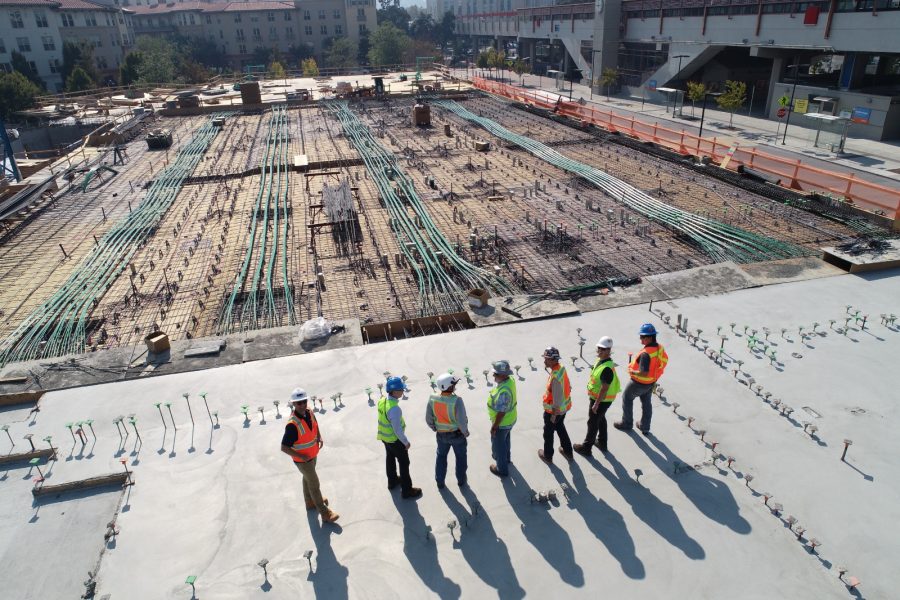One of the evils of politics today is the search for visibility, the preoccupation with doing mediatic things, gestures and phrases that pass in the media. This is what Manuela Ferreira Leite said in a programme on the collapse of the Entre-os-Rios bridge. Inaugurating a bridge, a motorway, a football stadium is good for the image, gives the right to applause, brings votes. Checking the state of the submerged foundations of a bridge, repairing them, goes unnoticed: there is no inauguration, the people do not come, the spotlight is absent.
This hunger for attention is felt by politicians and other sectors of society. “If you don’t show up, you forget”: so you don’t go up, you don’t make a career. The worst thing is that, despite the exaggeration, Edson de Athayde has a point: “The human brain starts working the moment a person is born and doesn’t stop until he or she steps onto a podium to hold a rally”. Or until he sees a radio microphone, a television camera, or simply a journalist’s pen.
In the Church we need more men and women using the “modern pulpits” that are the media. Didn’t Jesus send us to preach on the rooftops? My admiration for these multipliers of joy and hope. I applaud those who stand up for the honour of God or human rights.
But one is left with the impression that some people run towards the spotlight like butterflies towards the light, burning the wings of common sense with demagogic tirades, inconsistent assertions, answers to all questions and solutions to all problems. I fear that, in this way, the Church will gain notoriety but not beauty, will be in the mouths of the world but lose credibility. Jesus himself censured those who rang bells so that people would notice them.
He certainly recommended that our light should shine, that we should be like a city built on high, that we should do works that could be seen. But he also wanted us to be humble like salt, which is diluted in food, acting imperceptibly. He commanded us to knead life with evangelical leaven, but without spectacular gestures, without throwing ourselves from the pinnacle of the temple or the tower of the clergy.
It is normal for us to worry about the social marginalisation of the religious dimension, as if it were a secondary element of the private sphere. It is understandable that we are concerned about the obscuring of the religious sense in the heart of the people and in their culture. For our faith undoubtedly has a communal and social function. A need for visibility. Not to be the centre of attention or to dazzle. But simply to illuminate. To be illuminated beacons that give signals to men and women navigating in the night.
Visibility is the result, the fruit – spontaneous, natural, necessary – of authenticity. A hawthorn tree will only bear thorns. A good plant necessarily produces good fruit. A true rose is necessarily fragrant. A plastic flower does not do that. A Brazilian oak cannot stop warming up. A pile of fire-coloured paper doesn’t warm anything, it only deceives.
What weakens the Church the most – the Pope explained – is not the numerical decrease, the loss of social relevance of once glorious institutions, the lack of visibility. What weakens the Church most is the loss of adherence to the Lord and to one’s own mission: the deficit of authenticity. The Church will not flourish by having many members, by carrying out many undertakings, by showing excellent organisation. It will grow to the extent that it keeps the Gospel burning and increases the number of those who, silently, in the shadow of the daily Cross, build a world of love and justice, truth, peace and life.
How can we make the gratuitousness and detachment of our works more visible? Are our educational and pastoral practices really compassionate like those of Jesus? Are we really on the side of justice and truth, freedom and beauty, or do we simply say that we are? In the face of today’s challenges, do we limit ourselves to elaborate ecclesiastical discourses or do we try to make our lives parables that question and shed light?
“What is essential is invisible to the eye” – wrote Saint’Éxupéry. If we do not take care of the foundations, the invisible pillars, our magnificent bridges are in danger of collapsing.
Abílio Pina Ribeiro, cmf
(PHOTO: Scott Blake)






